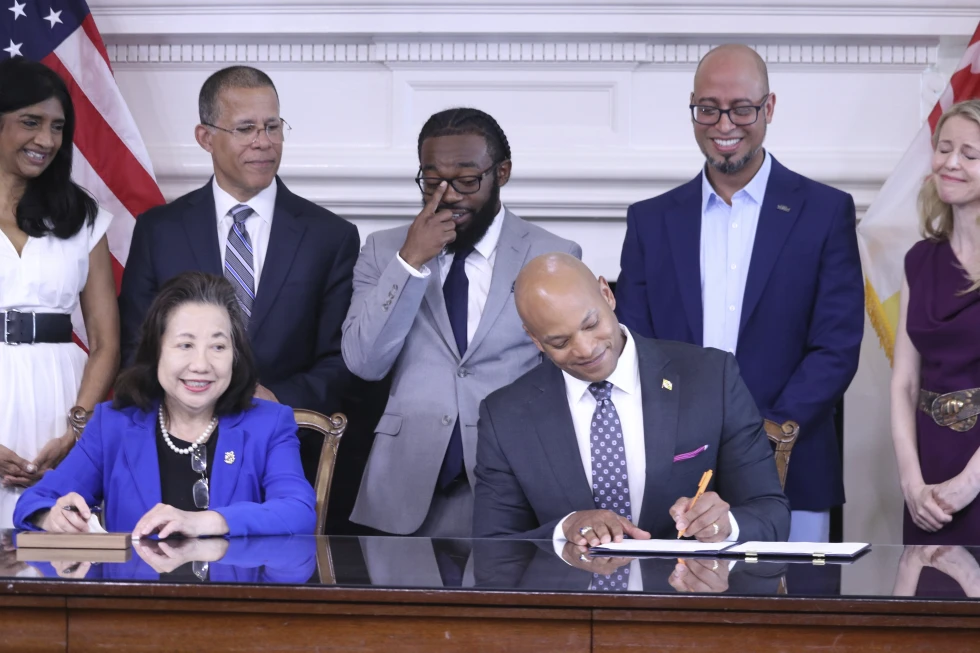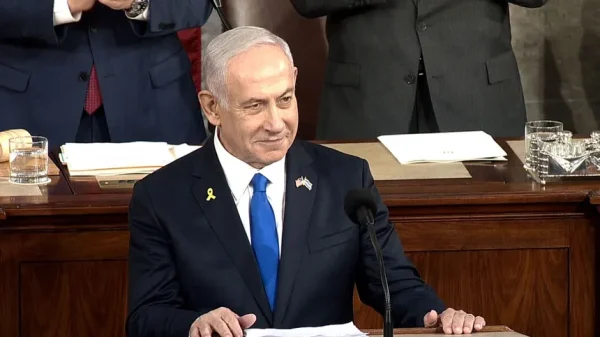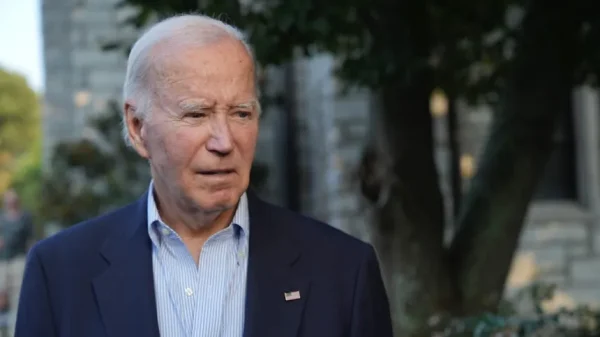This week, Maryland joined other states in announcing mass pardons for individuals convicted of marijuana-related offenses, reflecting ongoing efforts across the country to address the impact of the decades-long war on drugs.
Governor Wes Moore’s initiative will pardon over 175,000 convictions for cannabis possession or drug paraphernalia, though these pardons won’t permanently remove these offenses from people’s criminal records.
Across the U.S., efforts to address old marijuana convictions have resulted in about 2.5 million expungements and pardons, according to NORML, a group advocating for legalized marijuana. Despite this progress, the number represents only a small fraction of the over 30 million Americans arrested for marijuana at the state or local level in the past half-century.

Wes Moore signs an executive order to issue more than 175,000 pardons for marijuana convictions (Via Jake Simmons)
Pardons restore civil rights like voting and gun ownership, while expungements completely erase convictions, enabling access to federal college aid, public housing eligibility, and participation in children’s school activities. Few executive officials, including governors and mayors, have executed broad pardons similar to Maryland’s, also seen in Massachusetts, Nevada, Oregon, Birmingham, Alabama, and Kansas City, Missouri.
President Joe Biden has issued multiple rounds of pardons for possession on federal lands or in Washington, D.C., although the exact number covered remains unclear. Those pardoned must apply for a certificate to confirm their status; so far, just over 200 individuals have done so under Biden’s pardon.
Expungements typically require court orders mandated by law, though Oregon includes these with pardons, and Maryland’s approach simplifies the expungement process.
























